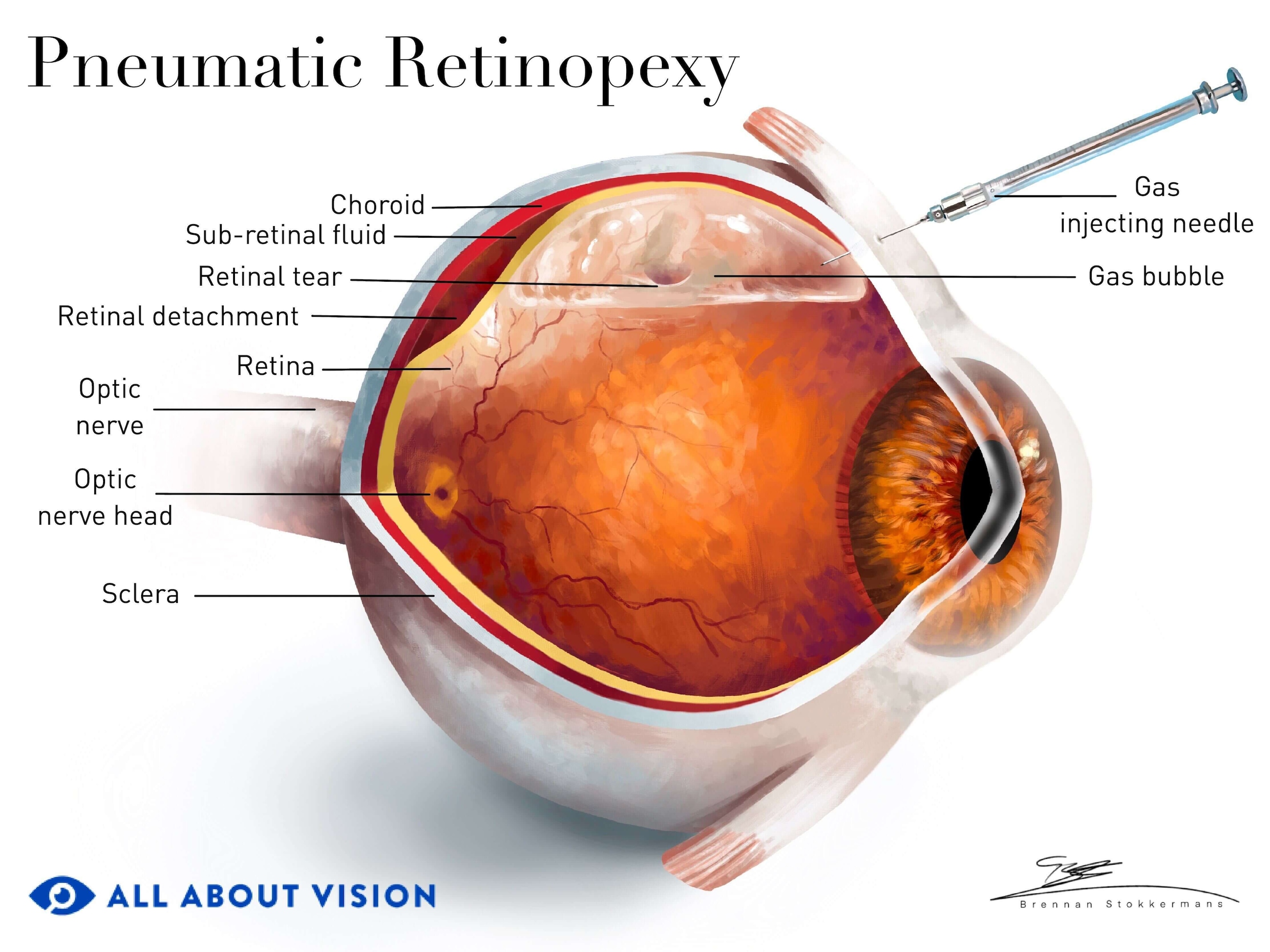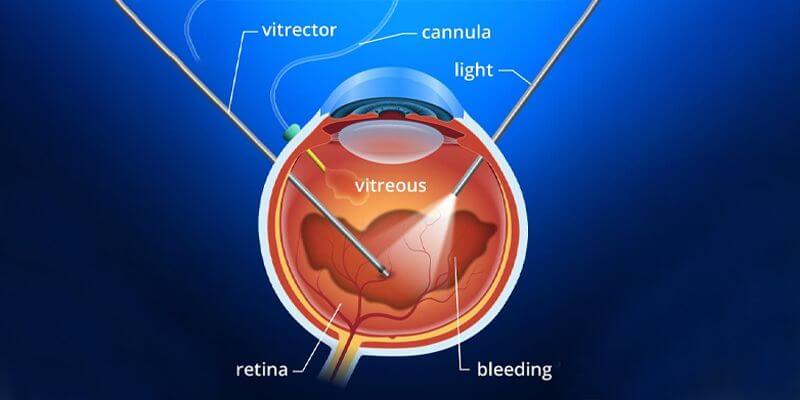Overview
A detached retina is when the retina lifts away from the back of the eye. The retina does not work when it is detached, making vision blurry. A detached retina is a serious problem, and an opthalmologist needs to check it right away or you could lose sight in that eye.
Early signs of a Detached Retina
Seeing Flashing lights all of a sudden. Some people say this is like seeing stars after being hit in the eye.
Noticing many new floaters at once. These can look like specks, lines or cobwebs in your field of vision.
A shadow appearing in your peripheral(side) vision.
A gray curtain covering part of your vision.
How do you get a Detached Retina?
As we get older, the vitreous in our eyes starts to shrink and get thinner. As the eye moves, the vitreous moves around on the retina without causing problems. But sometimes the vitreous may stick to the retina and pull hard enough to tear it. When that happens, fluid can pass through the tear and life (detach) the retina.
Who is at risk for a Detached Retina?
Need glasses to see far away (are nearsighted)
have had cataract, glaucoma, or other eye surgery.
Take glaucoma medicine that make the pupil small (like pilocarpine)
Had a serious eye injury
Had a retinal tear or detachment in your other eye
Have family members who had retinal detachment
have weak areas in your retina (seen by an eye doctor during an exam)
Diagnosis
Your ophthalmologist will put drops in your eye to dilate (widen) the pupil. Then they will look through a special lens to check your retina for any changes.
Treatment
Pneumatic retinopexy
Your ophthalmologist puts a gas bubble inside your eye. This pushes the retina into place so it can heal properly. Afterwards, you will need to keep your head in a very specific position as your doctor recommends for a few days. This keeps the bubble in the right place. As your eye heals, your body makes the fluid that fills the eye. Over time, this fluid replaces the gas bubble.

Vitrectomy
Your ophthalmologist removes the vitreous pulling on the retina. The vitreous will be replaced with an air, gas, or oil bubble. The bubble pushes the retina into place so it can heal properly. If an oil bubble is used, your ophthalmologist will remove it a few months later. With an air or gas bubble, you cannot fly in an airplane or travel to high altitudes or scuba dive. This is because altitude change causes the gas to expand, increasing eye pressure.

Scleral Buckle
A band of rubber or soft plastic is sewn to the outside of your eyeball. It gently presses the eye inward. This helps the detached retina heal against the eye wall. You will not see the scleral buckle on the eye. It is usually left on the eye permantly.

Risks of Detached Retina surgery
All surgery has risks and problems. But if you do not treat a detached retina, you could quickly and permanently lose your sight. Here are some of the risks of surgery for a detached retina.
Eye infection
Bleeding in your eye
Glaucoma, when pressure increases inside the eye
Cataract, when the lens in your eye becomes cloudy
Need for a second surgery
Chance that the retina does not reattach properly
Chance that the retina detaches again
What to expect after the surgery
You might have some discomfort for a few days to weeks after surgery. You will be given pain medicine to help you feel better.
You need to rest and be less active after surgery for a few weeks. Your ophthalmologist will tell you when you can exercise, drive or do other things again.
You will need to wear an eye patch after surgery. Be sure to wear it as long as your doctor tells you.
If a bubble was put in your eye, you will need to keep your head in one position for a certain length of time, such as 1-2 weeks. Your doctor will tell you what that specific head position is. It is very important to follow the directions so your eye heals.
You may see floaters and flashing lights for a few weeks after surgery. You may also notice the bubble in your eye.
Your sight should begin to improve about four to six weeks after surgery. It could take months after surgery for your vision to stop changing. Also, your retina may still be healing for a year or more after surgery. How much your vision improves depends on the damage the detachment caused to the cells of the retina.
FAQ
What is the most common cause of Retinal Detachment?
Most common causes are usually sports incidents, diabetes, or aging.
Will it go away on its own?
No, a Detached Retina needs surgery in order for proper healing. Otherwise you stand a very good chance of losing your vision.
What do floaters look like?
Floaters look like clouds, strings, or small specks moving in your vision.